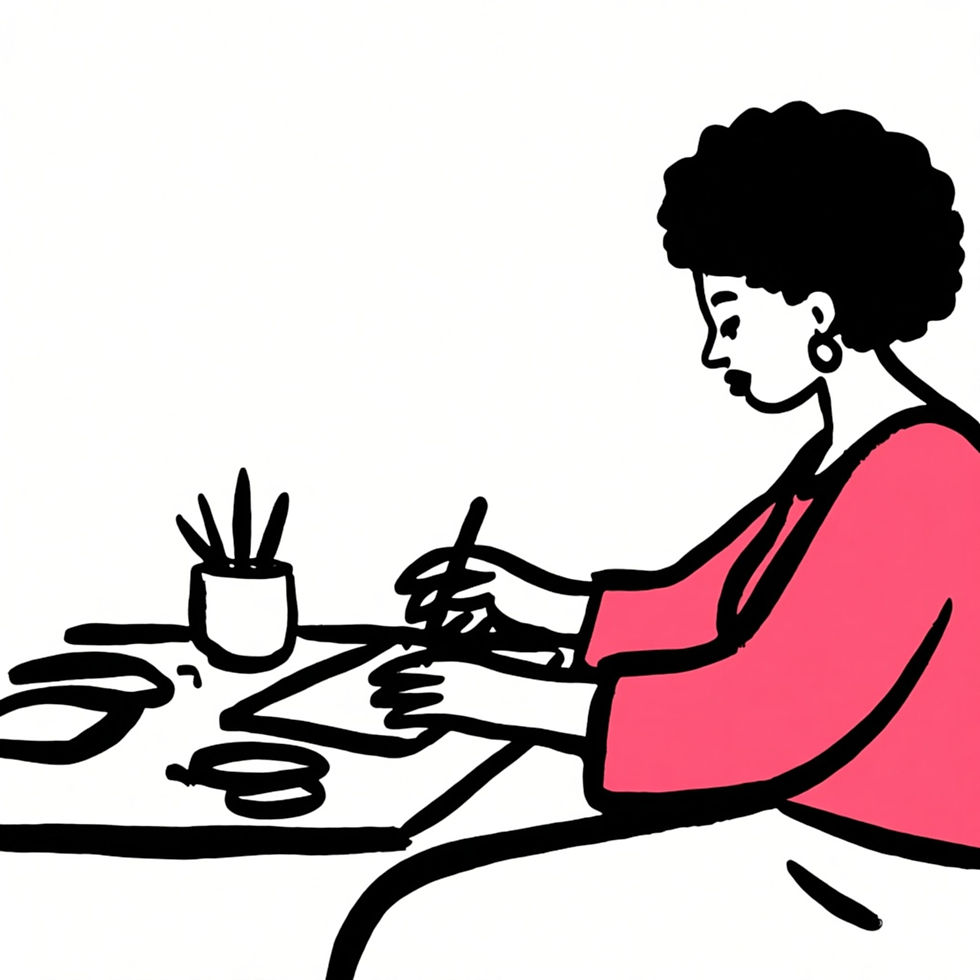How to Support a Friend Struggling with Their Mental Health
- euniceanteh
- Oct 26, 2025
- 3 min read
Updated: Nov 1, 2025
We’ve all been there, seeing someone we love fall quiet, fade away, or break down in tears and not knowing what to say or do.
Do I call? Do I give them space? What if I say the wrong thing?
The truth is, you don’t need to have all the answers. You just need to show up with care.

We all have that friend who’s been “a little quiet lately.”
The one who says “I’m fine” but their eyes tell a different story.
Maybe that friend is someone you love.
Maybe… it’s You.
Supporting someone through an emotional breakdown isn’t about saying the perfect thing, it’s about being there.
Listening.
Holding space.
Reminding them that they still matter even when everything feels too heavy to hold together.
If you’ve ever wondered what to say, how to help, or how to show up without feeling helpless, here are some tips for you....
Tip #1 - Notice the Signs, Don’t Ignore Them
Sometimes, it’s not obvious that someone is struggling. Other times, the signs are clear but easy to overlook because we’re afraid to intrude.
Pay attention to changes like:
They withdraw from people or activities they usually enjoy
Their messages sound sad, angry, or distant
They seem tired, anxious, or easily upset
They start saying things like “I’m tired of everything” or “Nothing matters anymore.”
💡 What to do:
You can gently say,
Hey, I’ve noticed you haven’t seemed like yourself lately. How are you really feeling?
Even if they don’t open up right away, that simple question plants a seed: someone cares.
Tip #2 - Listen More Than You Talk
When your friend finally opens up, your job isn’t to fix it but to listen.
Sometimes they just need to let the storm out.
Try this:
Put away distractions
Keep eye contact
Don’t rush to give advice
Instead of:
❌ “You’ll get over it.”
❌ “Others have it worse.”
❌“Let me tell you about my own problems…”
Say this:
✅ “That sounds really hard. Thank you for trusting me.”
✅ “I may not fully understand, but I’m here for you.”
✅ “Take your time, I’m here and listening.”
Even if you mean well, those words can make them feel unseen.
Tip #3 - Be a Safe Space
You’re not their therapist, but you can be their anchor.
✅ Offer small, practical help:
Bring them food or tea
Sit with them in silence
Send them a calming playlist or a funny video
Offer to go on a walk or run errands together
Sometimes, the smallest kindness reminds them they’re not alone in the world.
Tip #4 - Gently Encourage Professional or Community Support
If your friend seems stuck or deeply distressed, help them reach out for extra support.
You can say:
Talking to someone really helped me when I was struggling. Want me to help you find support?
There’s no shame in getting help, it means you’re taking care of yourself.
If they’re part of a faith or cultural community, suggest safe resources they might trust; a spiritual leader, community worker, or a peer support group.
The key is to invite, not insist.
Healing is most powerful when people feel empowered, not pressured.
Tip #5 - If It Feels Like a Crisis
If your friend says things like “I don’t want to be here anymore,” “I wish I could disappear,” or seems close to harming themselves:
Stay with them (in person or on the phone)
Stay calm and don’t argue
Encourage calling a helpline or emergency service
If needed, reach out for help on their behalf
Check out our mini-directory for mental health support to find local numbers instantly.
Your presence could save a life.
Tip #6 - Keep Checking In
After the tears dry and the moment passes, your friend still needs care.
Follow up. Text them the next day. Check in next week.
It’s often *after* the breakdown that the quiet loneliness hits hardest.
You can say:
Thinking of you today — how’s it going?
Want to grab some air or coffee this weekend?
They may not respond every time. But they’ll remember that you didn’t give up on them.
Tip #7 - Take Care of Yourself Too
Supporting someone through emotional pain can be heavy. It’s okay to step back, rest, and care for your own mental health.
You can’t pour from an empty cup.
Helping someone heal should not mean losing your own peace.
💛 Final Words
When someone you love is falling apart, your empathy, patience, and presence matter more than anything you can say.
You don’t need perfect words—just a real heart.
Sometimes, the most powerful thing you can say is:
I’m here. You’re not alone.



Comments